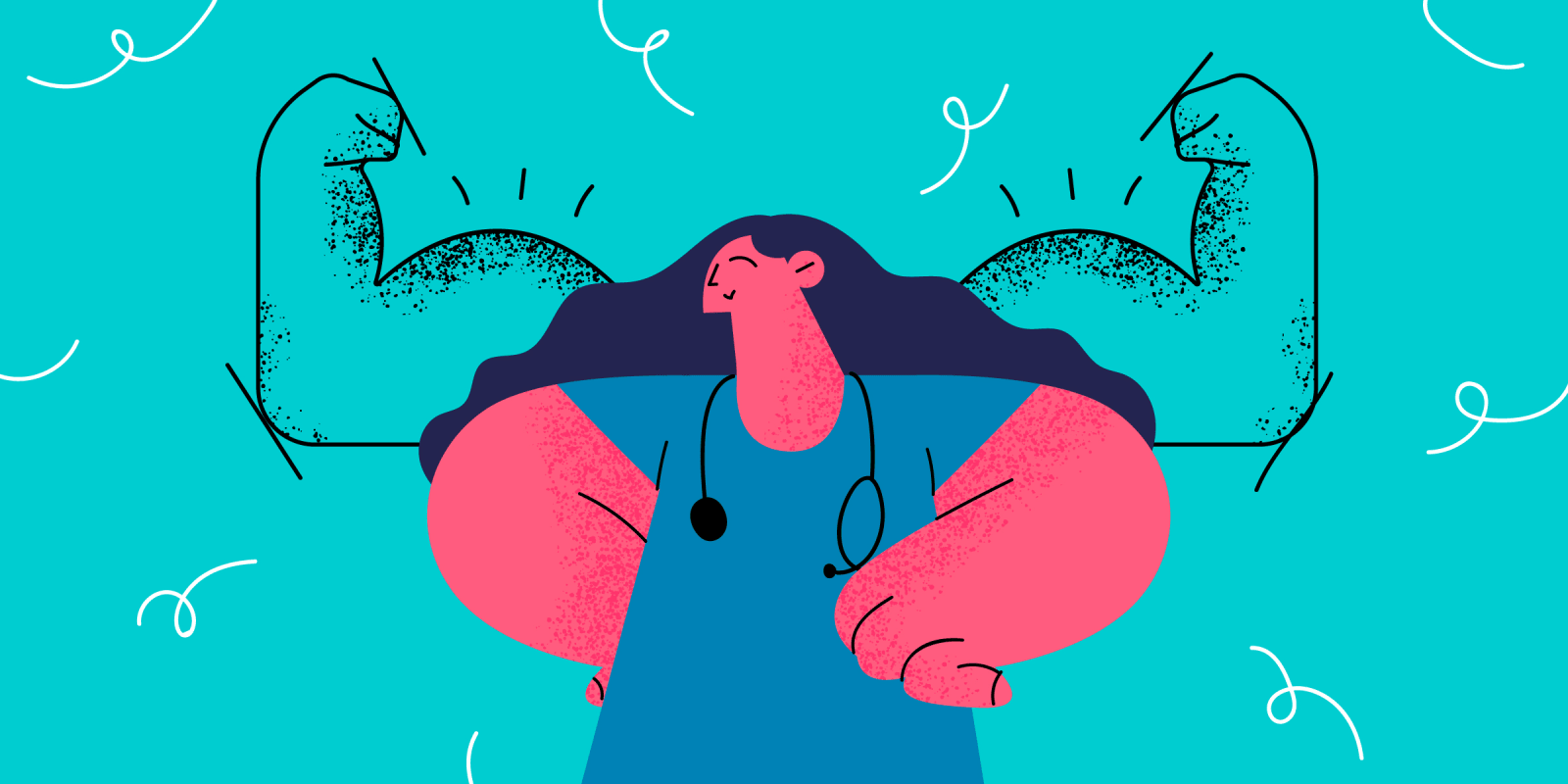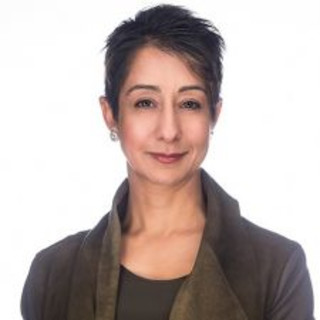Friday, February 3 was National Women Physicians Day.
On this day, a popular instagram account in the medical aesthetics space made a post stating, “Shout out to all the NPs, PAs, RNs, MDs and DOs on National Women Physicians Day.”
After many voiced their disapproval and offense, the original post was taken down, and an apology was made.
First, I want to say that I value all the members of my health care team. My patients receive better care because of the empathy and care that the nurses I work with provide. My surgeries go smoothly because of the work of the techs and assistants in the OR. All of these individuals are necessary for me to provide good care as a physician. However, National Nurses Day is May 6; and National Physician Assistants Day is October 6. MDs and DOs are not recognized on either of these days.
February 3 is also the birthday of Elizabeth Blackwell, who was the first woman to obtain a medical degree in the U.S. The day strives to bring awareness to the accomplishments and the work that still needs to be done for women physicians in the workplace. While medicine today has changed — women made up 50.9% of medical school students in 2019 according to the AAMC, and 35% of the physician workforce — women physicians still earn less than their male counterparts and women still experience bias in the workplace.
During the days that have followed this misadventure by the instagram account, I began to reflect on the importance of a name, and the importance of the title of “Doctor” in my life.
Anureet — The name I was given by my father. He said it meant ‘cosmos.’ A quick google search reveals many more meanings. Tradition. Atom Culture.
Boy. Girl. Like many Sikh names, it can be unisex. (As a religion, Sikhism has foundations in equality, so many names can be given to either a boy or a girl.)
Mrs. Bajaj — Our neighbor sued me. She bought a house, tore it down, built a new one, and then told me my land was her land.
In the lawsuit, she referred to me as ‘Mrs. Bajaj.’ When I received the papers, I was confused. ‘Mrs. Bajaj’ is my mother, not me. My husband’s name is Trevor Swink; my name is Anureet Bajaj. Some people call me ‘Dr. Bajaj’; others call me ‘Anu’; and others may say ‘Dr. Anu.’ Maybe even ‘Mrs. Swink.’ But no one has ever referred to me as ‘Mrs. Bajaj.’
Words matter. Language matters. And as an attorney herself, my neighbor understands that titles matter. By referring to me as ‘Mrs. Bajaj,’ she effectively reduced my authority.
We receive our names when we are born. And while we may not choose our names, they become a critical part of our identity. Names identify our ethnicity, religion, or family lineage. And our titles continue to identify and classify who we are — Ms., Mrs., Dr. These titles have the power to convey respect.
Dr. Bajaj-Luthra — I went to medical school after being married, so I elected to hyphenate my name. Once I graduated, I found uttering ‘Dr. Bajaj-Luthra’ cumbersome. It was long and hard to say. Answering a page at night, the nurse would say, “Dr. Who?” Patients looked at my five-foot, 100-pound frame, heard me mumble my introduction, “I’m Dr. Bajaj-Luthra, what can I do for you?” The name seemed long and unwieldy. I was uncomfortable with my title, which seemed bigger than me. I imagined that my patients felt the same way and would wonder, “Is she really my doctor?”
So, unofficially, I attempted to shorten my name to ‘Dr. Bajaj,’ hoping that it would roll off my tongue easier. But it didn’t. The words didn’t come out with authority; they were mumbled. I began my first job at an academic medical center. As the only female faculty in a plastic surgery program; I wanted to be the ‘cool’ attending, so I had my residents call me by my first name. Then everyone called me by my first name, and I called others by their titles. Only later did I realize that my inability to use my name, ‘Dr. Bajaj’ — and not assume this powerful identity — jeopardized my standing in the academic hierarchy.
Once the residents and medical students around me were able to call me by my first name, I became one of them — an equal. Rather than responding to my questions at teaching conferences or regarding patient management, the residents felt that it was not my role to question them. I lost the distinction of being an attending surgeon from everyone around me — residents, staff, and my peers. I learned that a name could instill power, or take it away.
I remarried, but this time I didn’t change my name. My husband didn’t expect me to change my name or assume the title of ‘Mrs.’ Others were not as supportive of this decision. When we submitted our application for a marriage license, the county clerk looked perplexed — my husband winked at me, as he told her he was changing his name (he didn’t). Since then, he has signed for numerous packages at our home, checked in at numerous hotels, and RSVP’d to hundreds of invitations as ‘Mr. Bajaj.’
“Does it bother you when others call you ‘Mr. Bajaj’?” I asked. He said, “No, I don’t think of my name in the same way that you do. David (the principal at the school where my husband works) says that I shouldn’t let the students call me ‘Swink.’ To them, I am ‘Mr. Swink.’ I couldn’t understand the difference, but talking to you, I do.” A title matters. It conveys distinction and authority because he is their teacher.
Dr. Anu — Eventually, I joined my father, who is also a surgeon, in practice. I entered another established hierarchy, and no one knew where I fit into it. In the past, my father had been ‘Dr. Bajaj.’ And I had been his daughter. Could there be two ‘Dr. Bajaj’s’ in the same office? My father’s receptionist didn’t know what to call me; was I ‘Anu’ or was I ‘Dr. Anu’? When I tried to make changes in the office or do things differently with my patients, she said, “Doctor does it this way, and that is the way we have always done it.” I lost my title both in the hospital and at my new office. My father was ‘Dr. Bajaj.’ I was ‘Anu.’
I wanted the respect that came with the name ‘Dr. Bajaj,’ and I wanted to do things my way. I built a new building for our office. I grew a practice distinct from my father’s. I did surgeries my father hadn’t done. Physicians and patients began to see me as ‘Dr. Bajaj.’ At the hospital, nurses asked, “Is Pops helping you today?” Our relationship as surgeons changed — I perform complex reconstructive procedures, and he is my assistant. At the office, the old staff left, and the new staff came; I became ‘Dr. Bajaj,’ and my father became ‘Pops.’
Dr. Bajaj — A name is one of the subtle ways in which language can be used to create or take away power; it is more than just our identity. My neighbor called me ‘Mrs. Bajaj.’ I am not ‘Mrs. Bajaj.’ I am ‘Dr. Bajaj.’
I have spoken with other female physicians who also struggle daily with being called “Doctor” — both internally and externally. Pharmaceutical representatives, patients, or hospital employees assume that they can call you by their first name; but male physicians are rarely approached in such an informal manner. I can remember being introduced at a meeting: Every other person introduced was referred to as “Dr.___”; I was referred to by my first name.
On February 3, 2023, when that popular instagram account posted on social media, they removed the recognition that female physicians deserve on a day that was created to honor and recognize their accomplishments. All of us struggle with implicit bias — sometimes it comes from within us (my struggle to accept and embrace my title); other times it comes from external sources. The concern is that when we see this bias from external sources, it reinforces the impostor syndrome that we may have experienced. And we may be more apt to question ourselves, our authority, and our accomplishments … and then bias continues to perpetuate itself.
Have you ever struggled to claim your full authority as a woman in medicine? Share your experience in the comments.
Dr. Anureet Bajaj is a plastic surgeon in private practice in Oklahoma City, Oklahoma. She enjoys running, painting, and spending time with her dogs and family. Her IG handle is @bajajplasticsurgery. Dr. Bajaj is a 2022–2023 Doximity Op-Med Fellow.
Image by Denis Novikov / GettyImages







